
Researchers and health experts have highlighted the need for intensified efforts to delve into the roots of non-communicable diseases (NCDs) to tackle the menace in the West African sub-region.
NCDs, including heart disease, stroke, diabetes, and chronic respiratory illnesses, pose a major global public health challenge, accounting for an estimated 41 million deaths annually.
A report by the World Health Organization (WHO) in April 2022 highlighted the alarming rate of deaths from NCDs in Africa, where these diseases are increasingly becoming the main cause of mortality in sub-Saharan Africa. In 2019, NCDs were responsible for 37% of deaths, up from 24% in 2000. Furthermore, the WHO estimates that deaths from NCDs are likely to increase by 17% over the next 10 years, with Africa projected to experience a 27% increase. This equates to an additional 28 million deaths, expected to exceed deaths from communicable, maternal, perinatal, and nutritional diseases combined by 2030.
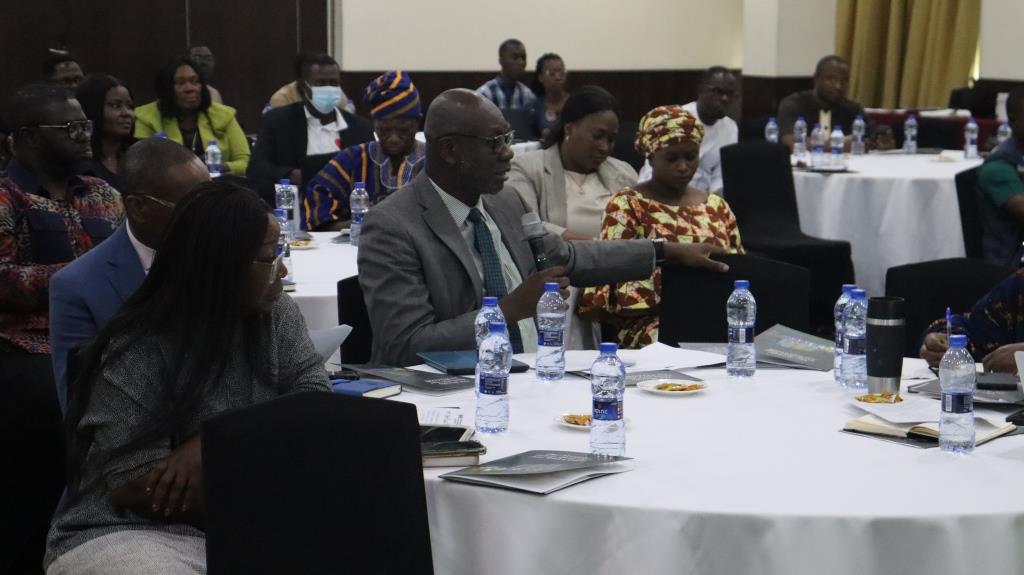
To address this issue, the National Institute for Health and Care Research (NIHR) and the Department of Health and Social Care (DHSC) in the UK provided £9.8 million in support for the establishment of a Global Health Research Centre for Non-Communicable Disease (NCD) Control in West Africa, known as STOP NCD.
The centre comprises the Ghana College of Physicians and Surgeons (GCPS) and the London School of Hygiene and Tropical Medicine (LSHTM) as the co-lead institutions, working in partnership with other organisations, namely Ashesi University in Ghana; the Catholic University of West Africa (UCAO-UUB) in Burkina Faso; and the Laboratoire d’Etudes et de Recherche sur les Dynamiques Sociales et le Développement Local (LASDEL) in Niger.
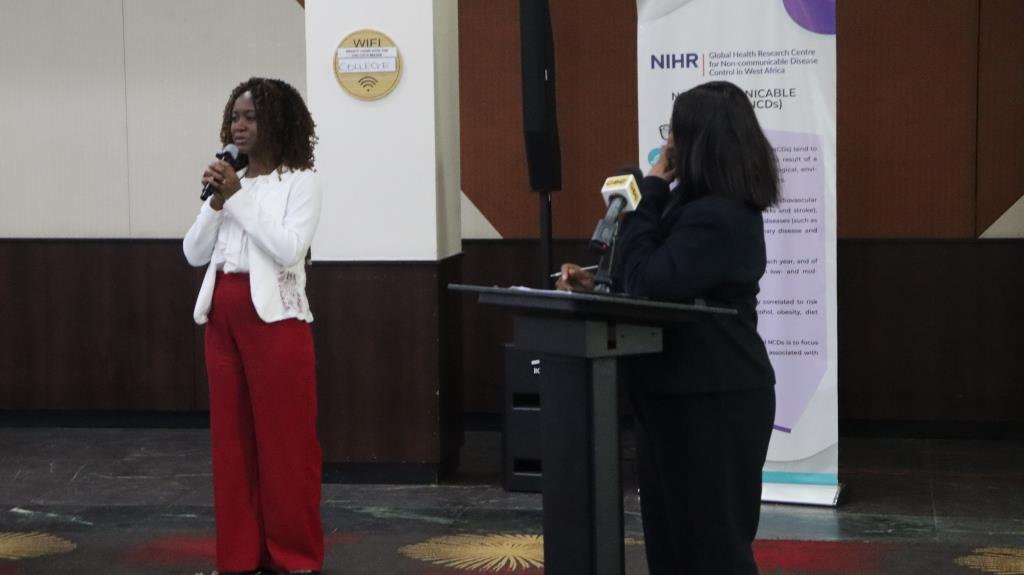
Two years into the research, Professor Irene A. Agyepong, Chair of the Faculty of Public Health at GCPS and Co-Director of the STOP NCD Research Centre, has highlighted key findings that require immediate attention.
Speaking at a forum in Accra on Thursday, February 13, 2024, to launch the findings of a situational analysis conducted by the STOP NCD team, Professor Agyepong shared significant concerns regarding NCD control in the country.
The forum served as a platform to discuss the findings from the situational analysis of NCDs in Ghana, focusing on control strategies, education, promotion, and screening for hypertension, diabetes, and mental health interventions.
“One of our key findings is awareness; there is still inadequate awareness and understanding,” she stated. “If an individual has hypertension and receives good primary care, they will not progress to a stroke.”
Professor Agyepong explained that the same applies to diabetes: “If they receive good primary care, they will not end up having their legs amputated.”
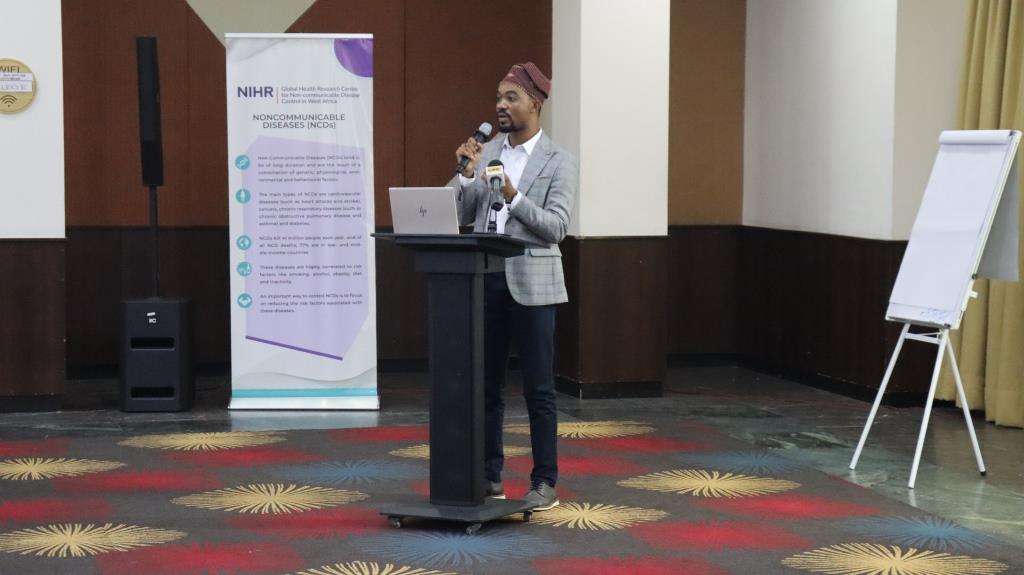
She further emphasised the need for both awareness and structural support: “But that awareness, and also the necessary support, we believe there is work to be done there.”
On his part, the Director of Public Health at the Ghana Health Service (GHS), Dr. Franklin Asiedu-Bekoe, underscored the importance of awareness in encouraging people to seek early medical intervention.
“If the awareness level is high, people will be motivated to visit the hospital and get tested at the health wellness clinics,” he noted.
He urged all Ghanaians to visit these wellness clinics for routine screening to determine whether they are hypertensive or diabetic.
Meanwhile, a member of the STOP NCD Advisory Committee, Dr. Sylvia Anie, stated that bringing key stakeholders together to discuss good practices concerning non-communicable diseases is both timely and essential.
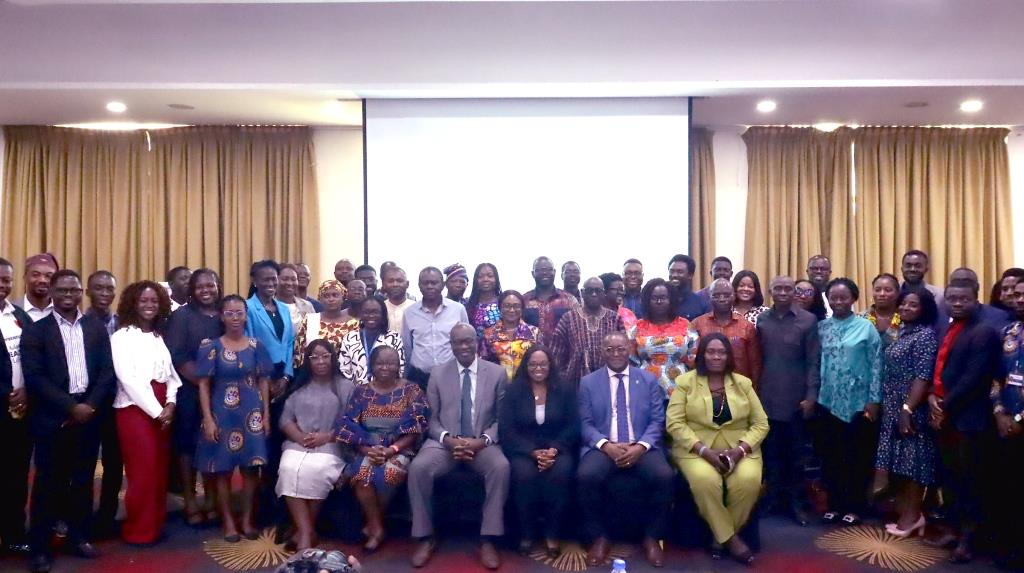
Dr. Anie, who is Co-chair of the WHO Expert Panel on Sexual and Reproductive Health, added, “This is an excellent forum for sharing findings and situational analyses on NCDs, as well as discussing NCD control, education, promotion, and screening for hypertension, diabetes, and mental health interventions in Ghana.”
“Let us collectively ensure that we move forward with the information gained from this stakeholders’ forum to achieve improved outcomes as we address NCD prevention, control, and treatment,” Dr. Anie concluded.
The post Non-communicable diseases awareness and understanding lacking – Prof Agyepong first appeared on 3News.
Read Full Story

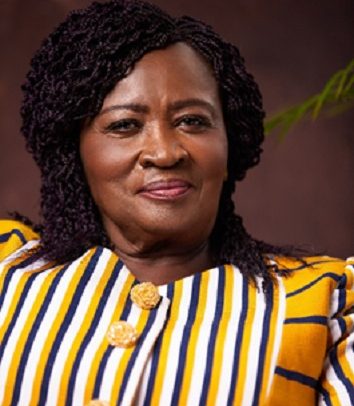














Facebook
Twitter
Pinterest
Instagram
Google+
YouTube
LinkedIn
RSS